
Mary Jacqueline Fabian
Mary Jacqueline Fabian was a talented soprano who toured throughout the United States in Europe in the twentieth century. Fabian’s primary legacy to the arts lies not in her performances, her versatility on stage, or her popularity behind the microphone, but rather in her organizational skills and her unswerving conviction that opera and music education are not just for the elite.
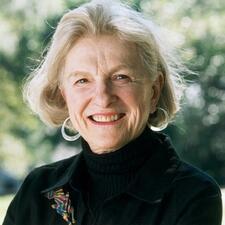
Claire Fagin
Claire Fagin was a distinguished nursing educator, scholar, and dean, as well as the first woman interim president of the University of Pennsylvania and the first female to achieve this position in any Ivy League university. Her groundbreaking studies on parents and children changed hospital practices around the country.
Ruth Fainlight
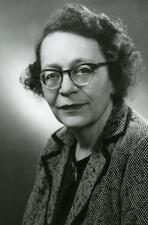
Minna Regina Falk
Minna Regina Falk was a historian, writer, and professor who is remembered for her work on German history. She became the first female full professor in New York University’s history department in 1963.
Family During the Holocaust
Although Jewish family life was destroyed and restructured in many ways during the Holocaust, it still often provided strength and a sense of normalcy. In many cases women became the family’s main income earner and were charged with many new tasks and responsibilities. Families were also frequently broken up by deportation, escape abroad, and death.
Ruth Lewis Farkas
Ruth Lewis Farkas’ remarkable and varied career ranged from creating a retail chain that survived the Great Depression, to teaching sociology, to running international education initiatives. Her impressive and full life spanned many occupations: educator, sociologist, businesswoman, philanthropist, inventor, wife, and mother.
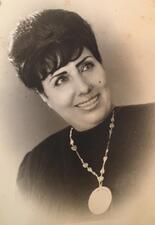
Zohra El Fassia
Zohra El Fassia was a renowned singer and recording artist in twentieth-century Morocco. Her life story moves between the burgeoning colonial recording industry in the Maghrib to North African immigrant histories in the south of Israel. El Fassia’s soulful music and powerful persona have resonated with generations of artists and activists who look to her for the unheard stories of Jews in the Arab and Muslim world and of Mizrahi Jews in Israel.
Rokhl Faygnberg (Imri)
Rokhl Faygnberg witnessed many of the defining events of modern Jewish history in her life, which took her from her shtetl to Israel. She was one of few women to establish herself as a professional Jewish writer and journalist, first in Yiddish and then in Hebrew, and in so doing was often outspoken, polemical, and controversial.
Sara Rivka Feder-Keyfitz
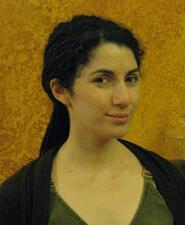
Nina Fefferman

Mimi Feigelson

Ruth Breslau Fein

Leslie Feinberg
Leslie Feinberg was a self-described “anti-racist white, working-class, secular Jewish, transgender, lesbian, female, revolutionary communist.” She worked at the nexus of trans, feminist, lesbian, critical race, Jewish, and class politics. A speaker and author, Feinberg was a gifted activist and political organizer.
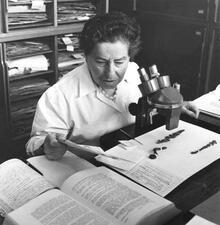
Naomi Feinbrun-Dothan
Naomi Feinbrun-Dothan helped pioneer the scientific analysis of native Israeli flora and establish the study of botany and genetics at the Hebrew University of Jerusalem.
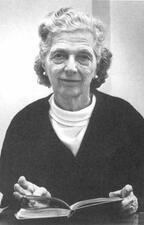
Jessica Feingold
Jessica Feingold devoted more than forty-five years of her life to carrying out the goals of the Jewish Theological Seminary. She edited fifty books that originated at the institution, while also serving in many different administrative positions.

Dianne Feinstein
Dianne Feinstein, former mayor of San Francisco and United States senior senator from California since 1992, was a political pioneer and a long-time U.S. senator. Throughout her career, Feinstein earned a reputation as a leader, reformer, and principal member of the Democratic Party.
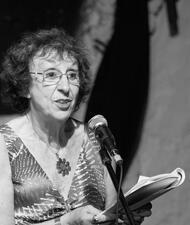
Elaine Feinstein

Nina Feinstein
Rabbi Moses Feinstein
Rabbi Moshe Feinstein, one of the great Jewish legalists of the twentieth century, wrote numerous legal decisions responding to and affecting women’s lives. His pronouncements regarding women aimed to respond to women’s issues with respect and careful consideration, while also establishing a system in which the roles of men and women were distinctly imbalanced.

Marcia Marker Feld
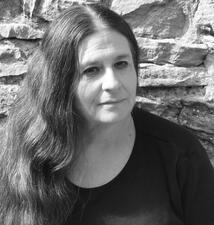
Merle Feld

Sandra Feldman
Sandra Feldman dedicated her career to protecting the rights of educators as the first woman president of both New York City’s Union Federation of Teachers (UFT) and the American Federation of Teachers (AFT).

Tovah Feldshuh




